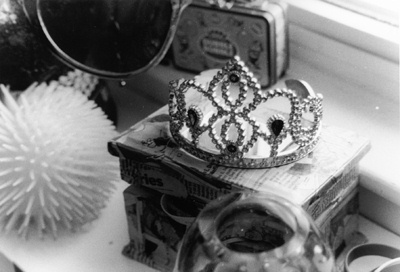All Nonfiction
- Bullying
- Books
- Academic
- Author Interviews
- Celebrity interviews
- College Articles
- College Essays
- Educator of the Year
- Heroes
- Interviews
- Memoir
- Personal Experience
- Sports
- Travel & Culture
All Opinions
- Bullying
- Current Events / Politics
- Discrimination
- Drugs / Alcohol / Smoking
- Entertainment / Celebrities
- Environment
- Love / Relationships
- Movies / Music / TV
- Pop Culture / Trends
- School / College
- Social Issues / Civics
- Spirituality / Religion
- Sports / Hobbies
All Hot Topics
- Bullying
- Community Service
- Environment
- Health
- Letters to the Editor
- Pride & Prejudice
- What Matters
- Back
Summer Guide
- Program Links
- Program Reviews
- Back
College Guide
- College Links
- College Reviews
- College Essays
- College Articles
- Back
The trouble with human nature and society: Pride and Prejudice
The novel Pride and Prejudice by Jane Austen delves into the two of the most ancient aspects of humanity: human nature and society as a whole. Long regarded as thought-provoking subjects many scholars in history have tried their hand at uncovering the meaning of there function and why they exist the way they do. As a citizen during the “Regency Era” of England, Austen was deep in a society full of zany customs and crazy behavior to gain inspiration from.
In its satire Pride and Prejudice presents two major themes that if combined, are the meaning of the work as a whole. The two themes are: the ludicrous nature of society’s value on decorum, and how human arrogance ultimately needs to be overcome in order to truly understand each other and have meaningful relationships. Throughout the novel these two major themes are displayed through its two main characters, Elizabeth and Mr. Darcy, in both their relationship and single characterization as a whole.
Elizabeth Bennet demonstrates the first of the prevailing themes of the book in a myriad of ways. Her character more so than any other shows a rebellious nature that ultimately presents the reader with a strong case for the theme of society’s value on decorum being absolutely ridiculous. A strong example of her defiance is when she states, “The more I see of the world, the more am I dissatisfied with it; and every day confirms my belief of the inconsistency of all human characters, and of the little dependence that can be placed on the appearance of merit or sense.”.
This quote is a clear assertion of her dissatisfaction of the political correctness forcibly placed on her by the Regency society that she lived in. Her dissatisfaction ultimately stems from her believe that decorum cannot be trusted. To her it creates an inconsistent facade that allows characters such as Mr. Collins to coast by with an assumed “merit” even though they are indeed untrustworthy characters. Her society values decorum too much, and this also angers her when her friend Charlotte marries the pompous Mr. Collins. She exclaims: “The other is Charlotte’s marriage. It is unaccountable! in every view it is unaccountable!”. She is enraged by the simple fact that society made Mr. Collins a suitable match for her friend instead of him proving to Charlotte through genuine human quality that he was a suitable match for her.
In his portrayal throughout the novel Mr. Darcy demonstrates the second prevailing theme. During his initial meeting with Elizabeth his arrogance prevents him from even giving her reasonable chance with him. Stating, “She is tolerable, but not handsome enough to tempt me, and I am in no humor at present to give consequence to young ladies who are slighted by other men,” Mr. Darcy quickly dismisses her due to his overwhelming arrogance. This however changes when Elizabeth “attracted him more than he liked”.
He tries to “be particularly careful that no sign of admiration should now escape him,” however, he simply cannot help but be enamored by the young Bennet. When he begins to shed his arrogance and allow himself to love and truly understand her, he eventually proposes and fails. It is only after this when his arrogance is truly fully lifted that he gets to Elizabeth’s heart. This is shown when she states “Why is he so altered? From what can it proceed? It cannot be for me — it cannot be for my sake that his manners are thus softened. My reproofs at Hunsford could not work such a change as this. It is impossible that he should still love me.”
The fact of the matter is, once Mr. Darcy allowed himself to lift his blinding arrogance he was able to truly understand that it really didn’t matter that Elizabeth was beneath his social class as long as he loved her. The eventual marriage that these two characters complete serves as the absolute prime example to prove the validity of the second theme of the novel which is human arrogance ultimately needs to be overcome in order to truly understand each other and have meaningful relationships. When the two over looked their differences they were finally able to see and feel a love connection.
In the novel Pride and Prejudice Jane Austen presents the reader with two central themes: the absurdity of society’s value on decorum, and the fact that human arrogance needs to be overcome in order to truly understand each other and have meaningful relationships. Together these two themes combined, illustrated through characters Elizabeth and Mr. Darcy, serve to create the overall meaning that Austen was trying to let the reader see through her work.

Similar Articles
JOIN THE DISCUSSION
This article has 0 comments.
